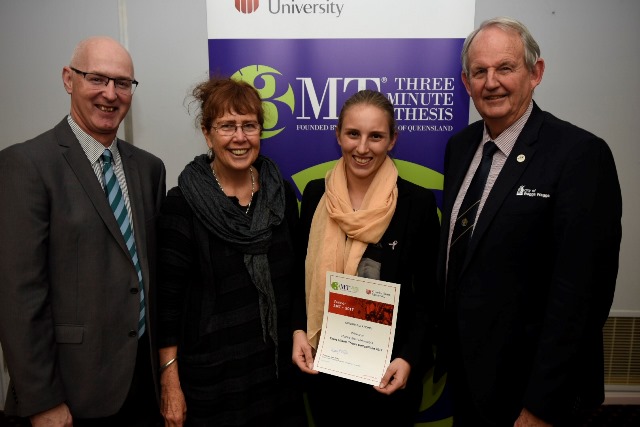A Charles Sturt University (CSU) student has embarked on a war on waste in the Australian beef industry.
 PhD
student Ms Cara Wilson from the School of Animal and Veterinary Sciences at CSU
in Wagga Wagga is focussing on the waste caused by hydatid disease (Echinococcus granulosus).
PhD
student Ms Cara Wilson from the School of Animal and Veterinary Sciences at CSU
in Wagga Wagga is focussing on the waste caused by hydatid disease (Echinococcus granulosus).
Hydatid disease is caused by a tapeworm parasite which lives in the gut of dogs and produces thousands of eggs which are spread throughout the environment via the faeces of the dog. Cattle become infected by consuming grass contaminated with infected faeces. The eggs hatch in the intestine of the cow releasing a microscopic 6-hooked larva that burrows out of the intestine, enters the bloodstream and travels to various organs where they gradually develop into fluid-filled hydatid cysts.
While the disease is rarely fatal in livestock, contaminated beef product identified at slaughter is either thrown out or downgraded to pet food.
Ms Wilson said, "The wastage of beef products throughout the food chain due to this parasitic disease costs various parties in the industry including beef producers and abattoirs.
"The annual wastage could, conservatively, be as high as 5 000 tonnes across the Australian beef industry.
"However, the exact magnitude of that loss is not clear. I hope to estimate the loss as well as the risk factors associated with the infection in beef cattle.
"My research will identify where infected cattle are coming from which will enable the beef industry to target control strategies.
"By quantifying the financial implications of this disease in the local industry, we will be able to calculate the financial viability of producing a vaccine for cattle. A vaccine is currently in the works for sheep and has been tested in cattle and has shown some very encouraging results.
"This project came about following my honours project where I developed a keen interest in animal health and epidemiology.
"I am fascinated with how and why disease occurs and what we can do to prevent disease and produce healthy animals."
Ms Wilson has been named the CSU winner of the Three Minute Thesis (3MT) competition for her presentation, War on waste: It's not just plastic bags. She was one of eight PhD students from the University to summarise their lengthy research in engaging three minute presentations for a panel of judges.
Second place and the People's Choice Award in the 3MT Final went to Ms Rao Shiwangni from the University's School of Biomedical Sciences for her three minute PhD presentation, Can rice kill cancer?
Ms Wilson will now go on to represent the University at the Asia-Pacific 3MT Competition in Queensland in September.
Both CSU students are members of the Graham Centre for Agricultural Innovation.





Social
Explore the world of social